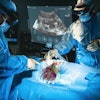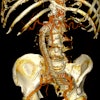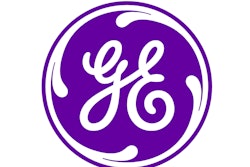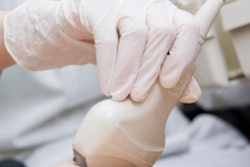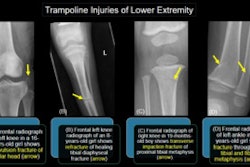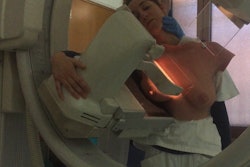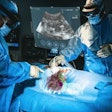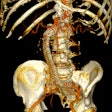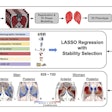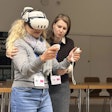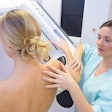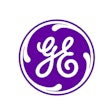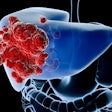Birmingham Children’s Hospital in the U.K. has received the green light for the clinical use of a magnetoencephalography (MEG) brain scanner, thanks to an £800,000 (€948,515) grant from the Medical Research Council and additional funding from Aston University.
A team led by Dr. Caroline Witton of the Aston Institute of Health of Neurodevelopment (IHN) plans to purchase MAG4Health's MEG machine, and for the construction of a magnetically shielded laboratory in the IHN building to house it, Aston announced. MEG measures tiny magnetic fields in the brain that are caused by electrical activity, Aston University said in its announcement.
 MAG4Health's magnetometer magnetoencephalography (OPM-MEG) brain scanner. Photo courtesy of Aston University.
MAG4Health's magnetometer magnetoencephalography (OPM-MEG) brain scanner. Photo courtesy of Aston University.
MAG4Health’s optically pumped magnetometer (OPM) MEG scanner uses an adjustable cap containing new sensors, that when placed on the patient’s head can pinpoint and track the brain’s neuronal activity in real-time to a precision that is not possible with other imaging technologies like MRI, the university stated.
Aston IHN and Birmingham Children’s Hospital (BCH), together, have implemented clinical use of MEG technology for planning brain surgery for children with epilepsy and brain tumors, according to the university. Witton, a reader in psychology who leads a nine-member clinical and research team at IHN, said OPM-MEG is the next frontier in her field. The MEG scanner could potentially improve the understanding and care of neuronal disorders -- brain disorders that are estimated to cost £798 billion (nearly €946 billion) annually in Europe alone.
The IHN and BCH OPM MEG research program is focused on improving outcomes for children with a wide range of brain disorders, including traumatic brain injury, and new clinical uses for the OPM-MEG to improve diagnosis of concussion. The research could also lead to rehabilitation specialists being able to carefully target their treatments, according to the university.
"OPM-MEG should make it possible to develop new ways of diagnosing and prognosing neuronal diseases," stated MAG4Health CEO Matthieu Le Prado in a statement. "The conformable headset will enable children to benefit from MEG examinations of the same quality as adults and, the room temperature operation of the sensors will allow continuous operations.”
Currently, MEG scanners are operated by specially trained technicians. However, through their partnership, teams at Aston University and BCH will work with MAG4Health to develop clinical practices and software that will allow data analysis to take place in hospitals, rather than limited to universities, Aston said.
The new facility is expected to open in 2025. Aston University noted that IHN is already registered with the Care Quality Commission (CQC) as a day hospital for children.

